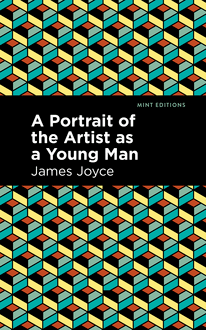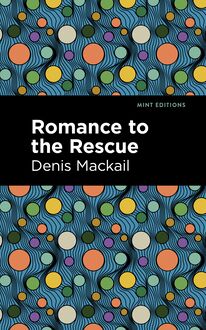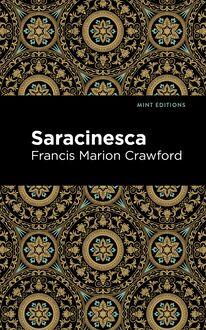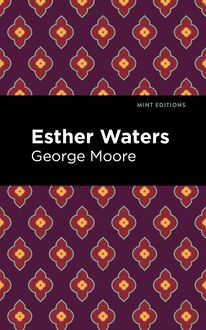-
 Univers
Univers
-
 Ebooks
Ebooks
-
 Livres audio
Livres audio
-
 Presse
Presse
-
 Podcasts
Podcasts
-
 BD
BD
-
 Documents
Documents
-
- Cours
- Révisions
- Ressources pédagogiques
- Sciences de l’éducation
- Manuels scolaires
- Langues
- Travaux de classe
- Annales de BEP
- Etudes supérieures
- Maternelle et primaire
- Fiches de lecture
- Orientation scolaire
- Méthodologie
- Corrigés de devoir
- Annales d’examens et concours
- Annales du bac
- Annales du brevet
- Rapports de stage
La lecture à portée de main
Vous pourrez modifier la taille du texte de cet ouvrage
Découvre YouScribe en t'inscrivant gratuitement
Je m'inscrisDécouvre YouScribe en t'inscrivant gratuitement
Je m'inscrisEn savoir plus
Vous pourrez modifier la taille du texte de cet ouvrage
En savoir plus

Description
New Grub Street (1891) is a novel by George Gissing. Inspired by his own struggles as a working writer and unhappily married man, Gissing crafts a tale of talent, ambition, and the strain placed on romance by financial need. New Grub Street poses important questions about convention in Victorian England while proving surprisingly relevant for our own times. In 18th century London, Grub Street was where the desperate writer went once their dreams of literary achievement had finally faded under the harsh light of failure. A century later, Grub Street is no more, but the demand for hack writers able to quickly churn out novels, stories, and articles has only increased. Against the odds, two men forge a friendship grounded in struggle. Edwin Reardon is a talented novelist who refuses to sacrifice his literary standards to appease the opinions of professional critics. Jasper Milvain is a jaded journalist who sees writing as a means of gaining greater economic and social mobility. Forced to attempt a popular novel, Reardon fails miserably, and exacerbates his already tense marriage to the point of divorce. Unwilling to mortgage his future for ideals, Milvain gains employment with a popular newspaper while inadvertently risking his relationship with Marian Yule, the sister of Edwin’s ex-wife. As fortunes rise and fall, literature and love give way to the pressures of life, leaving Gissing’s characters to face reality or flounder in willful ignorance. With a beautifully designed cover and professionally typeset manuscript, this edition of George Gissing’s New Grub Street is a classic work of English literature reimagined for modern readers.
Sujets
Informations
| Publié par | Mint Editions |
| Date de parution | 14 mai 2021 |
| Nombre de lectures | 0 |
| EAN13 | 9781513286563 |
| Langue | English |
| Poids de l'ouvrage | 3 Mo |
Informations légales : prix de location à la page 0,0500€. Cette information est donnée uniquement à titre indicatif conformément à la législation en vigueur.
Extrait
New Grub Street
George Gissing
New Grub Street was first published in 1891.
This edition published by Mint Editions 2021.
ISBN 9781513281554 | E-ISBN 9781513286563
Published by Mint Editions®
minteditionbooks.com
Publishing Director: Jennifer Newens
Design & Production: Rachel Lopez Metzger
Project Manager: Micaela Clark
Typesetting: Westchester Publishing Services
C ONTENTS P ART O NE I. A M AN OF HIS D AY II. T HE H OUSE OF Y ULE III. H OLIDAY IV. A N A UTHOR AND HIS W IFE V. T HE W AY H ITHER VI. T HE P RACTICAL F RIEND VII. M ARIAN ’ S H OME P ART T WO VIII. T O THE W INNING S IDE IX. I NVITA M INERVA X. T HE F RIENDS OF THE F AMILY XI. R ESPITE XII. W ORK W ITHOUT H OPE XIII. A W ARNING XIV. R ECRUITS XV. T HE L AST R ESOURCE P ART T HREE XVI. R EJECTION XVII. T HE P ARTING XVIII. T HE O LD H OME XIX. T HE P AST R EVIVED XX. T HE E ND OF W AITING XXI. M R . Y ULE LEAVES T OWN XXII. T HE L EGATEES P ART F OUR XXIII. A P ROPOSED I NVESTMENT XXIV. J ASPER ’ S M AGNANIMITY XXV. A F RUITLESS M EETING XXVI. M ARRIED W OMAN ’ S P ROPERTY XXVII. T HE L ONELY M AN XXVIII. I NTERIM XXIX. C ATASTROPHE P ART F IVE XXX. W AITING ON D ESTINY XXXI. A R ESCUE AND A S UMMONS XXXII. R EARDON BECOMES P RACTICAL XXXIII. T HE S UNNY W AY XXXIV. A C HECK XXXV. F EVER AND R EST XXXVI. J ASPER ’ S D ELICATE C ASE XXXVII. R EWARDS
PART ONE
I
A M AN OF HIS D AY
A s the Milvains sat down to breakfast the clock of Wattleborough parish church struck eight; it was two miles away, but the strokes were borne very distinctly on the west wind this autumn morning. Jasper, listening before he cracked an egg, remarked with cheerfulness:
“There’s a man being hanged in London at this moment.”
“Surely it isn’t necessary to let us know that,” said his sister Maud, coldly.
“And in such a tone, too!” protested his sister Dora.
“Who is it?” inquired Mrs. Milvain, looking at her son with pained forehead.
“I don’t know. It happened to catch my eye in the paper yesterday that someone was to be hanged at Newgate this morning. There’s a certain satisfaction in reflecting that it is not oneself.”
“That’s your selfish way of looking at things,” said Maud.
“Well,” returned Jasper, “seeing that the fact came into my head, what better use could I make of it? I could curse the brutality of an age that sanctioned such things; or I could grow doleful over the misery of the poor fellow. But those emotions would be as little profitable to others as to myself. It just happened that I saw the thing in a light of consolation. Things are bad with me, but not so bad as T HAT . I might be going out between Jack Ketch and the Chaplain to be hanged; instead of that, I am eating a really fresh egg, and very excellent buttered toast, with coffee as good as can be reasonably expected in this part of the world.—(Do try boiling the milk, mother.)—The tone in which I spoke was spontaneous; being so, it needs no justification.”
He was a young man of five-and-twenty, well built, though a trifle meagre, and of pale complexion. He had hair that was very nearly black, and a clean-shaven face, best described, perhaps, as of bureaucratic type. The clothes he wore were of expensive material, but had seen a good deal of service. His stand-up collar curled over at the corners, and his necktie was lilac-sprigged.
Of the two sisters, Dora, aged twenty, was the more like him in visage, but she spoke with a gentleness which seemed to indicate a different character. Maud, who was twenty-two, had bold, handsome features, and very beautiful hair of russet tinge; hers was not a face that readily smiled. Their mother had the look and manners of an invalid, though she sat at table in the ordinary way. All were dressed as ladies, though very simply. The room, which looked upon a small patch of garden, was furnished with old-fashioned comfort, only one or two objects suggesting the decorative spirit of 1882.
“A man who comes to be hanged,” pursued Jasper, impartially, “has the satisfaction of knowing that he has brought society to its last resource. He is a man of such fatal importance that nothing will serve against him but the supreme effort of law. In a way, you know, that is success.”
“In a way,” repeated Maud, scornfully.
“Suppose we talk of something else,” suggested Dora, who seemed to fear a conflict between her sister and Jasper.
Almost at the same moment a diversion was afforded by the arrival of the post. There was a letter for Mrs. Milvain, a letter and newspaper for her son. Whilst the girls and their mother talked of unimportant news communicated by the one correspondent, Jasper read the missive addressed to himself.
“This is from Reardon,” he remarked to the younger girl. “Things are going badly with him. He is just the kind of fellow to end by poisoning or shooting himself.”
“But why?”
“Can’t get anything done; and begins to be sore troubled on his wife’s account.”
“Is he ill?”
“Overworked, I suppose. But it’s just what I foresaw. He isn’t the kind of man to keep up literary production as a paying business. In favourable circumstances he might write a fairly good book once every two or three years. The failure of his last depressed him, and now he is struggling hopelessly to get another done before the winter season. Those people will come to grief.”
“The enjoyment with which he anticipates it!” murmured Maud, looking at her mother.
“Not at all,” said Jasper. “It’s true I envied the fellow, because he persuaded a handsome girl to believe in him and share his risks, but I shall be very sorry if he goes to the—to the dogs. He’s my one serious friend. But it irritates me to see a man making such large demands upon fortune. One must be more modest—as I am. Because one book had a sort of success he imagined his struggles were over. He got a hundred pounds for ‘On Neutral Ground,’ and at once counted on a continuance of payments in geometrical proportion. I hinted to him that he couldn’t keep it up, and he smiled with tolerance, no doubt thinking ‘He judges me by himself.’ But I didn’t do anything of the kind.—(Toast, please, Dora.)—I’m a stronger man than Reardon; I can keep my eyes open, and wait.”
“Is his wife the kind of person to grumble?” asked Mrs. Milvain.
“Well, yes, I suspect that she is. The girl wasn’t content to go into modest rooms—they must furnish a flat. I rather wonder he didn’t start a carriage for her. Well, his next book brought only another hundred, and now, even if he finishes this one, it’s very doubtful if he’ll get as much. ‘The Optimist’ was practically a failure.”
“Mr. Yule may leave them some money,” said Dora.
“Yes. But he may live another ten years, and he would see them both in Marylebone Workhouse before he advanced sixpence, or I’m much mistaken in him. Her mother has only just enough to live upon; can’t possibly help them. Her brother wouldn’t give or lend twopence halfpenny.”
“Has Mr. Reardon no relatives!”
“I never heard him make mention of a single one. No, he has done the fatal thing. A man in his position, if he marry at all, must take either a work-girl or an heiress, and in many ways the work-girl is preferable.”
“How can you say that?” asked Dora. “You never cease talking about the advantages of money.”
“Oh, I don’t mean that for M E the work-girl would be preferable; by no means; but for a man like Reardon. He is absurd enough to be conscientious, likes to be called an ‘artist,’ and so on. He might possibly earn a hundred and fifty a year if his mind were at rest, and that would be enough if he had married a decent little dressmaker. He wouldn’t desire superfluities, and the quality of his work would be its own reward. As it is, he’s ruined.”
“And I repeat,” said Maud, “that you enjoy the prospect.”
“Nothing of the kind. If I seem to speak exultantly it’s only because my intellect enjoys the clear perception of a fact.—A little marmalade, Dora; the home-made, please.”
“But this is very sad, Jasper,” said Mrs. Milvain, in her half-absent way. “I suppose they can’t even go for a holiday?”
“Quite out of the question.”
“Not even if you invited them to come here for a week?”
“Now, mother,” urged Maud, “T HAT’S impossible, you know very well.”
“I thought we might make an effort, dear. A holiday might mean everything to him.”
“No, no,” fell from Jasper, thoughtfully. “I don’t think you’d get along very well with Mrs. Reardon; and then, if her uncle is coming to Mr. Yule’s, you know, that would be awkward.”
“I suppose it would; though those people would only stay a day or two, Miss Harrow said.”
“Why can’t Mr. Yule make them friends, those two lots of people?” asked Dora. “You say he’s on good terms with both.”
“I suppose he thinks it’s no business of his.”
Jasper mused over the letter from his friend.
“Ten years hence,” he said, “if Reardon is still alive, I shall be lending him five-pound notes.”
A smile of irony rose to Maud’s lips. Dora laughed.
“To be sure! To be sure!” exclaimed their brother. “You have no faith. But just understand the difference between a man like Reardon and a man like me. He is the old type of unpractical artist; I am the literary man of 1882. He won’t make concessions, or rather, he can’t make them; he can’t supply the market. I—well, you may say that at present I do nothing; but that’s a great mistake, I am learning my business. Literature nowadays is a trade. Putting aside men of genius, who may succeed by mere cosmic force, your successful man of letters is your skilful tradesman. He thinks first and foremost of the markets; when one kind of goods begins to go off slackly, he is ready with something new and appetising. He knows perfectly all the possible sources of income. Whatever he has to sell he’ll get payment for it from all sorts of various quarters; none of your unpractical selling for a lump sum to a middleman who will make six distinct profits. Now, look you: if I had been in Reardon’s place, I’d have made four hundred at least out
-
 Univers
Univers
-
 Ebooks
Ebooks
-
 Livres audio
Livres audio
-
 Presse
Presse
-
 Podcasts
Podcasts
-
 BD
BD
-
 Documents
Documents
-
Jeunesse
-
Littérature
-
Ressources professionnelles
-
Santé et bien-être
-
Savoirs
-
Education
-
Loisirs et hobbies
-
Art, musique et cinéma
-
Actualité et débat de société
-
Jeunesse
-
Littérature
-
Ressources professionnelles
-
Santé et bien-être
-
Savoirs
-
Education
-
Loisirs et hobbies
-
Art, musique et cinéma
-
Actualité et débat de société
-
Actualités
-
Lifestyle
-
Presse jeunesse
-
Presse professionnelle
-
Pratique
-
Presse sportive
-
Presse internationale
-
Culture & Médias
-
Action et Aventures
-
Science-fiction et Fantasy
-
Société
-
Jeunesse
-
Littérature
-
Ressources professionnelles
-
Santé et bien-être
-
Savoirs
-
Education
-
Loisirs et hobbies
-
Art, musique et cinéma
-
Actualité et débat de société
- Cours
- Révisions
- Ressources pédagogiques
- Sciences de l’éducation
- Manuels scolaires
- Langues
- Travaux de classe
- Annales de BEP
- Etudes supérieures
- Maternelle et primaire
- Fiches de lecture
- Orientation scolaire
- Méthodologie
- Corrigés de devoir
- Annales d’examens et concours
- Annales du bac
- Annales du brevet
- Rapports de stage




















